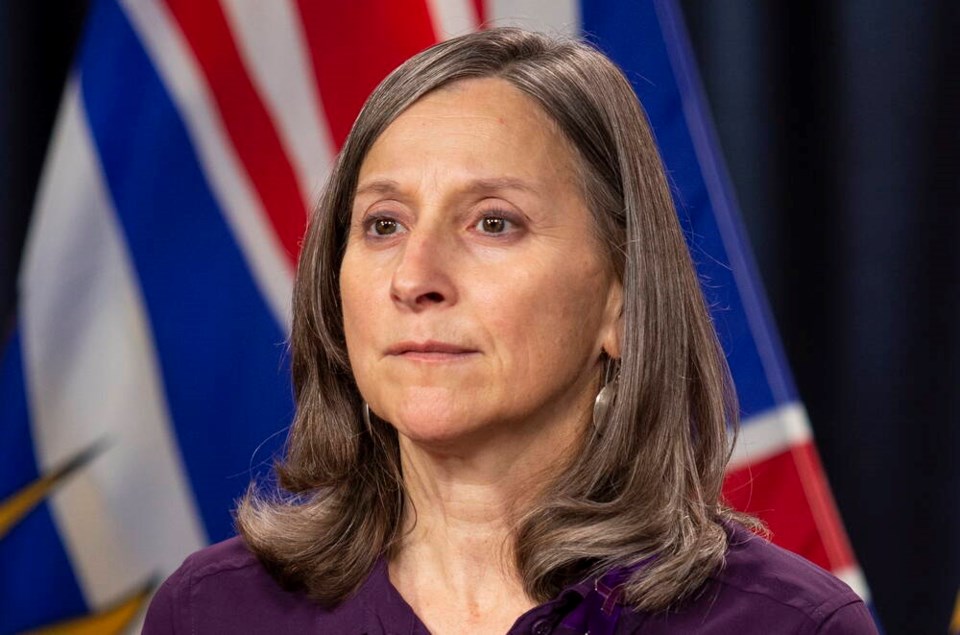There has never been a wider, more tragic gap between a specific goal sincerely set by governments and what they’ve delivered.
The government of B.C. recognized the opioid crisis for what it was years ago, an urgent, deadly health crisis that needed major attention. Two successive parties have spent several terms attempting to deal with it.
Chief coroner Lisa Lapointe released a year-end fatality summary on Wednesday that is the closest thing to an objective progress report on B.C.’s core goal of curbing the death toll. It’s a record of utter failure. Just like last year’s fatality summary, and the one before that, and the one before that.
At least 2,224 people died due to toxic illicit drugs in 2021. The rate of death through seven years since the health emergency was officially declared has risen by more than 400 per cent. It’s extremely difficult to find a single metric of any note that isn’t getting worse.
The 2021 count is 26 per cent higher than the 2020 count (1,767). And it got worse over the course of the year. The November and December death tolls were the worst months ever, with 210 and 215 deaths. Every health region in B.C. reported the worst numbers ever. The highest number of drug deaths was in Vancouver, Surrey and Victoria.
The province-wide death rate in 2021 was 42.8 per 100,000 residents, the highest rate in Canada. It stood at 6 per 100,000 ten years ago. By 2017 it had quintupled. Hundreds of millions of dollars poured into an assortment of programs expressly designed to curb that rate have had zero impact. And the update confirms once again how much worse the opioid crisis is in B.C. than any other province. Federal statistics show 90 per cent of the opioid fatalities occur in B.C., Alberta and Ontario. But B.C.’s fatality rate is about twice Ontario’s.
Officials said the crisis hit B.C. much earlier, which partly explains the much higher count. But that doesn’t explain why the current rates are so sky-high. The intertwined pandemic has gotten a big share of the blame, but it is hitting everywhere, not just B.C.
Opposition B.C. Liberals landed on the report during question period in the legislature, sharpening criticism of the various NDP attempts to curb the death toll.
But Lapointe’s remarks, from the perspective of an independent coroner who is counting the bodies day by day, were far more devastating.
“Our province is in a worse place than it has ever been,” she said. “I am so sorry that now in the seventh year of this public health emergency, the updates are still so tremendously devastating.”
A peer clinical adviser from Vancouver, Guy Felicella, joined Lapointe at the briefing and issued a blanket indictment of the current approach. “What we are doing is not working. After six years of this it’s clear that we’re not learning from our mistakes.”
He also rapped the established pattern that has been locked in place for years now: “Why do we only hear from some [officials] once a month, at best simply acknowledging the number of people who have died, taking a public flogging for a day and them moving on?”
That didn’t stop the pattern being repeated 90 minutes later, when Mental Health and Addictions Minister Sheila Malcolmson and Premier John Horgan continued the ritual in the legislature.
The stand-alone ministry was created by the NDP in 2017 to prevent exactly what is happening from taking place. It has obviously made zero difference. All Malcolmson could do is cite the more encouraging statistics in other areas about treatment beds, new programs and new approaches related to safe consumption.
The only defence that can be offered in this historic failure is that it could be worse. Some deaths have been averted, but the number is unknowable.
Horgan’s remarks were slightly startling. Virtually all the officials now condemn the “war on drugs” approach, but Horgan devoted part of his response to some tough talk about drug dealers, which was reminiscent of the old approach.
“I want to condemn those who prey on the vulnerabilities of others. … We have to track down those predators in our society that are killing people every day because they don’t give a darn.”


